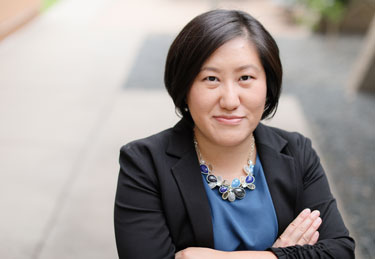This article is the fourth in the 2021 Fresh Perspectives series, presented by the de Beaumont Foundation. Published in the weeks leading up to APHA’s 2021 Annual Meeting and Expo, the series showcases viewpoints from a range of public health professionals around social connectedness.
In this post, Chao Yang, assistant director of the University of Minnesota in St. Paul’s Community Engagement to Advance Research and Community Health team, underscores the need for researchers to establish rapport, trust and accountability with community members. Yang, an honoree of de Beaumont’s 40 Under 40 program, advises that people should avoid assuming they understand the experiences of others.
Recently, I spoke with a researcher who wanted to incorporate community engagement into her work. I learned she envisioned recruiting Black and brown children for a research study. However, she had already decided against hiring translators, citing budget constraints.
She’d made the decision even with knowledge that many youth from Minnesota’s Twin Cities are from immigrant households, where English is not the primary language. If the study proceeded, non-English speaking parents might be ill-informed of the research their children were enrolled in, and the study might also exclude some children from the research, creating a missed opportunity to establish a representative group.
The way academic research has traditionally been done must change. It is curated for a select audience, and this exclusivity has resulted in a gap. Because of the prescriptive way most research is conducted — without engaging the population the research is intended to benefit — the message to community members is that they are not equipped to be a part of the conversation. Rather, they should trust those with relevant scientific expertise to evaluate their experiences and adopt their conclusions. 
If this sounds counterintuitive to adopting health research or the belief in its relevance, it is. It also disempowers communities to be bold co-creators and collaborators in the research process, and is perceived to be extractive. Researchers must recognize that what they possess is expertise and not “lived experience.”
It’s appalling for researchers to think they can drop in to a cultural or racial community and assume the group would be grateful to be studied or asked to provide answers. Even if they have expertise, such as 30 years of work researching a cultural or racial group, the researcher still does not have the lived experience of an actual community member, and one person cannot represent an entire collective community.
We are living at a time when health care spending is at its highest, but health disparities, particularly for historically and currently excluded cultural and racial groups, persist. One reason is the glaring disconnect between health knowledge and behavioral practice. It’s unrealistic to think a randomly selected community member would be able to access research and buy-in to interventions without ongoing engagement in their environment.
Community engagement is usually brought into the research conversation as a tactic to diversify patient recruitment for clinical trials and research studies. It is especially sought after to increase participation by people who are Black, indigenous and other people of color. However, this method doesn’t consider the currency, trust and good relationships required of doing work in communities. The absence of both fails to build a foundation to do the actual research well, and ends up doing harm.
The commitment to actual translation of research into community spaces requires a different approach. Such an approach integrates community ownership, collaboration and authentic engagement, including diversity, equity and inclusion into the process. The collaboration between community and academic researchers requires an upfront investment to build good rapport and accountability for shared intentions and goals, where authentic engagement can thrive. This goes beyond following another prescribed research model, and it involves designing processes to foster customized, explicit and meaningful community engagement throughout the health research spectrum.
As with DEI, effective community engagement is systematic in its design, implementation and evaluation. There is an opportunity at every decision-making point of the research process to engage representative communities, including hiring diverse research staff, developing a research question, making the relevant community connection, incorporating community feedback, assisting with recruitment for clinical trials and disseminating results. Community engagement is least effective when treated as an ad hoc response to a shortsighted research design.
The health research discipline is an avid contributor to public health, and the way we have done research in the past is no longer working. As more conversations shift to elevating community input for broader impact, organizations doing research must possess the discipline to stop and re-evaluate how they are integrating the full spectrum of community engagement and DEI into their practices, serving as a catalyst to bridge both research and practice.